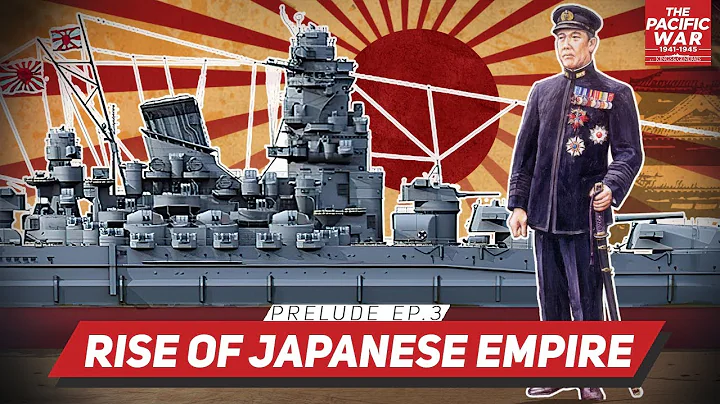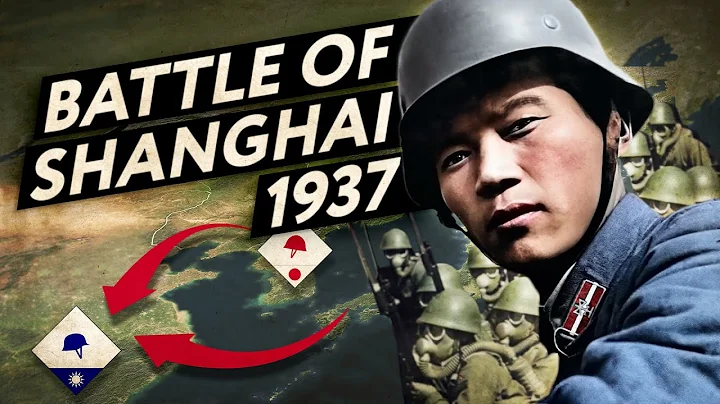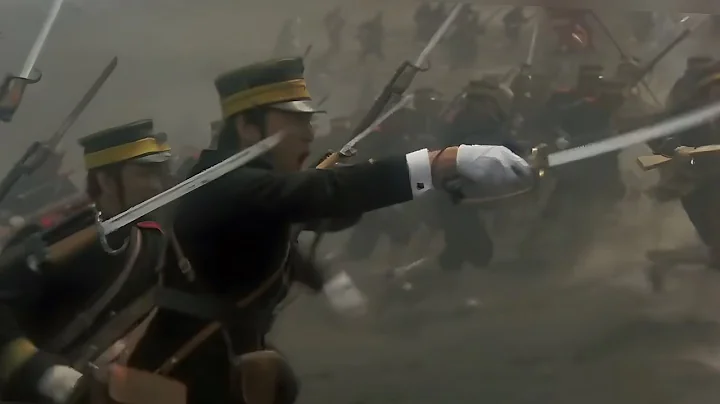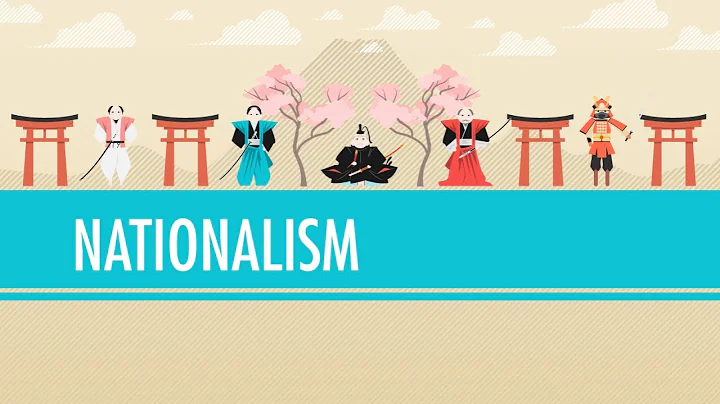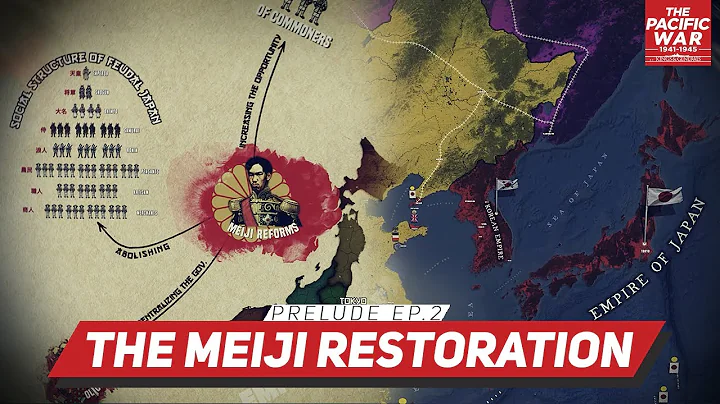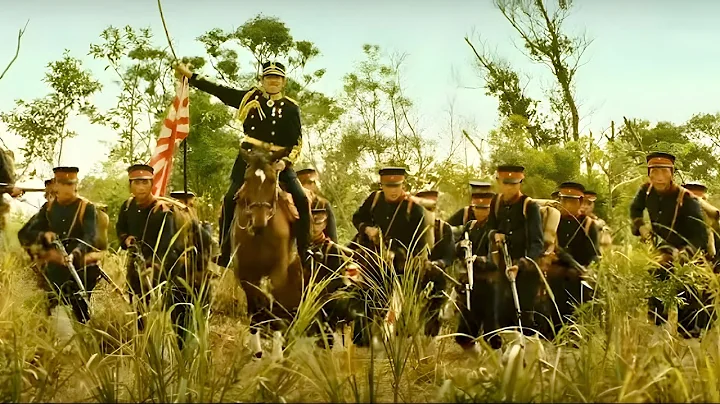In 1894, a decisive battle broke out between China and Japan, also known as the Sino-Japanese War of 1894.. This battle not only determined the success or failure of the Westernization Movement and the Meiji Restoration, but also determined the fate of the two countries in the next few decades. How did and of the Qing Dynasty lose this war? Some people say that the gap in comprehensive national strength is too big, some say that the Qing Dynasty is too corrupt, and others say that there is a problem with the Qing army's tactics. So, how did the Qing Dynasty fail? Let's look at the course of the war.
1. What is the difference between the Westernization Movement and the Meiji Restoration?
In 1861, the Qing Dynasty began the Westernization Movement and gradually began the road to industrialization. Japan also started the "Meiji Restoration" in 1868 and embarked on the path of comprehensively learning from the West. By 1894, great changes had taken place in both countries, but China's comprehensive national strength had lagged behind Japan. The Sino-Japanese War of 1894 was just a manifestation or proof. Let’s take a look at the huge gap between the Westernization Movement and the Meiji Restoration in the following table.

After the Meiji Restoration, Japan showed its ambition for external expansion, wanting to "open up thousands of miles of waves" and "spread the country's prestige in all directions." In this regard, all walks of life in Japan gradually formed a consciousness of expansion into China. The main step was to first annex North Korea and Taiwan Island as a springboard, then annex Manchuria and Mongolia, and finally occupy all of China. In order to cooperate with Japan's expansion policy, Japanese academic circles proposed the "Yuan and Qing Dynasties are not Chinese theory", intending to instigate ethnic conflicts in China and split China.
In 1887, Japan formulated the "Conquest of the Qing National Policy" , forming a complete and mature strategic plan, marking the Japan's war of aggression against China entering the preparatory stage. In the following decades, Japan followed the steps of this plan to invade China.

In 1874, Japan annexed Ryukyu and invaded Taiwan. The Qing Dynasty then vigorously developed the navy with the intention of defending the southeast and preventing Japanese invasion. In the 1980s, three navies were formed: Beiyang, Nanyang, and Fujian, ranking first in Asia in terms of scale. In 1886, the Northern Fleet visited Japan, and the "Nagasaki Incident" occurred. The Beiyang Fleet had the opportunity to wipe out the Japanese Navy in the cradle in one fell swoop and easily regain the Ryukyu Islands, but Li Hongzhang finally chose to compromise and finally let the tiger return.
After the Nagasaki incident, Japan made a nationwide effort to build its navy. The emperor provided 300,000 yen, and other officials needed to provide one-tenth of their salaries. All walks of life also actively donated money. In 1891, Beiyang Navy visited Japan again. At this time, the navies of the two countries were already equivalent in strength. In the 1990s, the Qing Dynasty's fleet was not updated due to funding problems. Although it was large in size, its equipment was old and its speed was slow, and it had fallen behind. Japan, on the other hand, purchased the latest warships, and its naval strength has surpassed that of the Qing Dynasty.

In order to obtain a springboard to attack the mainland, Japan has been infiltrating North Korea. In 1876, Japan forced North Korea to sign the "Treaty of Ganghwa", opening the door to North Korea. Since then, the pro-Japanese and pro-China factions in North Korea have opposed the struggle. In 1882, the "Imwu Mutiny" broke out in North Korea, killing many Japanese. Japan took the opportunity to send troops to intervene and forced North Korea to sign more treaties. After the mutiny, the Qing Dynasty also sent troops to North Korea to strengthen its control over North Korea. Yuan Shikai and others advocated the establishment of a province in North Korea, but Li Hongzhang did not follow the suggestion.
In 1884, the pro-Japanese faction in Korea launched the "Jiashen Coup", which was suppressed by the Qing army, and Japan also sent troops to North Korea. In 1885, Li Hongzhang compromised and signed the "Tianjin Treaty" with Japan, agreeing that both countries would withdraw their troops at the same time. This treaty gave Japan more privileges and also tied the hands of the Qing Dynasty. According to the content of the treaty, the Qing Dynasty would have to notify Japan when it sent troops to North Korea. This is very absurd.
2, Ye Zhichao ran 500 miles, Beiyang Fleet Battle Yellow Sea
In 1892, Japan had completed the "First Five-Year Preparation Plan" for the war of aggression against China. Its army size reached 200,000, and its navy's tonnage reached 6 More than 10,000 tons.Diplomatically, Britain, Germany and the United States are all paying close attention to Russia's expansion trends and actively support Japan's expansion to contain Russia. So Japan began to bide its time and look for excuses.
In the spring of 1894, the Dongxue Party peasant uprising broke out in North Korea. Li Hongzhang immediately asked Nie Shicheng and Ye Zhichao to mobilize the Huai army to North Korea. Based on the contents of the "Tianjin Treaty", Japan immediately sent troops to North Korea in an attempt to provoke a Sino-Japanese war. War clouds are gathering on the Korean Peninsula. Emperor Guangxu, Weng Tong, and others asked the Qing Dynasty to prepare for war immediately, but Empress Dowager Cixi did not want the "Longevity Celebration" of her 60th birthday to be disturbed, so she tried to avoid the war and continued to embezzle naval military expenditures. Li Hongzhang was worried that the Huai army would be destroyed, and also advocated avoiding war and seeking peace.

In July 1894, Japan increased its troops to Korea and seized Seoul . The Qing Dynasty's army stationed in Asan was left alone. Li Hongzhang woke up from his dream and immediately dispatched navy and hired foreign ships to increase troops in Asan. However, he was informed by Japanese spies. On July 25, the Japanese army launched a surprise attack in Toshima waters, and the Beiyang Navy lost two warships. At the same time, the Japanese army attacked the Qing army in Yashan. Nie Shicheng led his army to fight but was defeated. Ye Zhichao led his army to flee to Pyongyang.
Prior to this, the Qing Dynasty had prepared to dispatch the " Flying General " Liu Jintang who had recovered Xinjiang to command the army in North Korea. However, this eternally famous general died of a stroke just after setting off, so Ye Zhichao was temporarily appointed as the commander-in-chief.
After the Battle of Toshima , the Liaodong Army also entered Pyongyang, with a total strength of 16,000. Japan's attack force on Pyongyang is 15,000, and both sides are equally matched. The Japanese army is not sure of victory. Its chief general Yamaxian Youpeng is ready to die in battle. However, Ye Zhichao was as timid as a mouse and advocated escape, which led to the disorganization of the army. As a result, various generals fought independently and lost the initiative. In the end, the Qing army failed, and deputy general left precious sacrificed. At night, Ye Zhichao led the main force to escape, but was ambushed by the Japanese army halfway. He suffered heavy losses and lost all his luggage. Ye Zhichao dropped everything and ran 500 miles across the Yalu River.

Before the fall of Pyongyang, Ye Zhichao requested the central government to provide material supplies. So Li Hongzhang sent Navy Admiral Ding Ruchang to lead the Beiyang Fleet to transport supplies to Pyongyang. On September 17, the Beiyang Fleet was preparing to return, but the Japanese Navy immediately went to intercept it after getting the news, and the Yellow Sea Battle broke out.
Because the Japanese Combined Fleet is faster and has installed more than 190 rapid-fire cannons , its rate of fire is 20 times that of the Beiyang Fleet. In terms of ammunition, the Beiyang Navy mainly uses armor-piercing projectiles, which are less destructive; the Japanese army uses grenades , which are more lethal. After five hours of fighting between the two sides, only four ships of the Beiyang Navy still maintained combat effectiveness, while none of the Japanese ships was sunk. However, the Japanese army was temporarily helpless against the two ships "Zhenyuan" and "Dingyuan" and could only withdraw from the battlefield after winning.

Third, Li Hongzhang proposed a protracted war and woke up too late
After the Battle of Pyongyang, the Qing army stood firm in Liaodong. The Japanese army was divided into two groups. Shanxian Youpeng led the first army of 30,000 people to cross the Yalu River from the front to contain the main force of the Qing army; the second army landed from Huayuankou to outflank the naval base in Lushun. Once Port Arthur is captured by Japan, the Japanese army can attack Beijing at any time.
After the Yellow Sea War, Liu Buchan ordered to recuperate and supervised work day and night. It only took a month to regain his combat effectiveness. However, Li Hongzhang implemented the strategy of "avoiding war and preserving ships" and ordered the fleet to move to Weihaiwei, handing over sea control in the Yellow Sea and Bohai Sea. As a result, the Japanese army could freely transport troops, food, and weapons in the Yellow Sea and Bohai Sea, providing conditions for the Japanese Second Army to attack Lushun.

On October 24, the Japanese army arrived at the Yalu River, built pontoons overnight, defeated the Qing army's defense lines, and occupied strategic locations such as Jiuliancheng, Dandong, Phoenix City, Kandian, Xiuyan, Haicheng , advance to Liaoyang . Except for Hushan and Gangwa Village who resisted, the rest of the Huai army surrendered.. Afterwards, the Qing Dynasty mobilized the Eight Banners Army from Northeast China to assist in the war. The Eight Banners Army are basically Eight Banners cavalry and lack cannons. Letting them attack the city is simply " using their own shortcomings to attack the other's strengths ". In the end, the Japanese army relied on Haicheng and used artillery to deal a heavy blow to the Qing army, and the Haicheng counterattack failed.
In view of the repeated defeats of the Huai Army, the Qing Dynasty transferred a total of Hunan Army Hunan Army, Chu Army, and Anhui Army to Liaodong, with a total of 80 battalions. However, the Qing army did not have a chief general, and each army still fought independently. The degree of corruption in the Hunan Army is no less than that of the Huai Army. The phenomenon of being paid by empty pay is very serious. "There are ten battalions of that are less than the number of and five battalions of , and eight battalions are less than three battalions." The commander-in-chief of the Hunan Army, Wu Dacheng, was a scholar and knew nothing about military affairs. Let this Hunan army counterattack, and it will naturally fail completely. Within 6 days, 60,000 Hunan troops lost the three fortresses of Niuzhuang, Yingkou, and Tianzhuangtai, and the capital was shaken.

Lushun Massacre
When the main force of the Qing army was contained in Haicheng, the Japanese army concentrated 30,000 people to land at Huayuankou and quickly advanced towards Jinzhou. Li Hongzhang ordered the Qing troops in Jinzhou and Lushun to "guard their camps" and not to take the initiative, which made the Japanese army easily capture Jinzhou and Lushun. Subsequently, Japan carried out another massacre, and 30,000 Chinese compatriots were brutally killed .
When Lushun was in crisis, Ding Ruchang requested to lead the Beiyang Navy to go to war and support Lushun. Li Hongzhang strictly ordered " to avoid war and save ships", emphasizing that "no war is allowed, no step away from Weihai is allowed, and it is like going to war against orders, even if you win, you will not win." " and the Japanese army did not want to let go of the Beiyang Navy. At that time, a large number of troops from the mainland were transferred to Liaodong, leaving Shandong empty of troops.

The Japanese army easily landed in Shandong, defeated the " River Defense Battalion " who was a heavy smoker, and captured the Weihaiwei fort. The Japanese fleet blocked the Beiyang Fleet in Weihaiwei, making it vulnerable from both sides. Ding Ruchang asked to fight again, but was rejected by Li Hongzhang again. At the critical moment of life and death, foreigners and officers and soldiers who were greedy for life colluded and forced Ding Ruchang to commit suicide. He led 11 warships to surrender to the Japanese army, resulting in the entire Beiyang fleet being confiscated by the Japanese army.
After the Beiyang Fleet was completely annihilated, Li Hongzhang finally became tough and demanded that the entire country be mobilized to Liaodong to fight a protracted war with the Japanese army. After eight months of war, Japan can no longer hold on. If the war continues, Japan's economy may collapse. Japan is also worried that Russia, Britain, etc. will take advantage of the situation to attack Japan. Therefore, fighting a protracted war is the right choice. However, Empress Dowager Cixi was completely disappointed. She sent Li Hongzhang as a plenipotentiary minister to Japan to negotiate, and finally signed the "Treaty of Shimonoseki".

Liu Gongdao
From the perspective of the entire war process, the failure of the Qing Dynasty was mainly due to several reasons. First, the Qing Dynasty had a backward system and political corruption. The Huai Army and Hunan Army, which had only been established for 30 years, had already lost their combat effectiveness, leading to the collapse of the land war. Second, Li Hongzhang's conservative combat thinking always prohibited the army from taking the initiative to attack to avoid expanding the war. In the end, his hands were tied, resulting in the fall of a large number of areas and the complete annihilation of the Beiyang Fleet. Third, the equipment of the Qing Dynasty's army was seriously backward. Among them, the equipment level of the Beiyang Navy was already different from that of the Japanese fleet. Taken together, the Qing Dynasty will definitely fail in this war.

